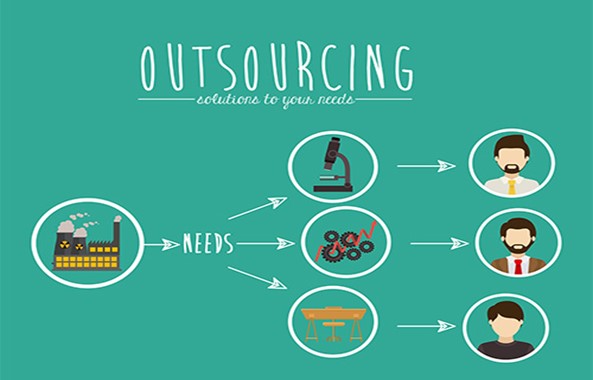


25
Aug
While outsourcing is often associated with big companies, it can be highly beneficial for small businesses as well. Here are some common myths that prevent smaller enterprises from adopting this powerful strategy.
Outsourcing benefits businesses of all sizes by allowing them to focus on core activities and access specialized skills without the overhead costs.
Outsourcing can be a cost-effective solution as it often saves on salaries, benefits, and office expenses.
With the right partner, you remain in control and receive regular updates, aligning outsourced tasks with your business goals.
Outsourcing to specialized professionals can actually improve quality, whether it’s content writing, customer support, or IT services.

Outsourcing is not limited to technical tasks. You can outsource a wide range of business activities, including marketing, content development, customer support, and recruiting. This flexibility allows small businesses to access specialized services without the need to hire full-time staff.
Outsourcing isn’t inherently riskier than other business strategies. By carefully selecting a trusted partner and clearly defining roles and expectations, you can minimize risks and leverage outsourcing for greater efficiency.
Cost savings are just one of the many benefits of outsourcing. Outsourcing helps small businesses increase productivity, scale operations, and focus on core tasks by allowing them to delegate non-core activities to professionals.

One of the most frequent worries is that outsourcing removes employment from local regions. But this is not always the case. Outsourcing is often used by small businesses to augment their staff, meaning that it helps businesses expand and generate more employment opportunities for locals in the future. Moreover, outsourcing can also assist in maintaining the competitiveness of the organization and, therefore, its sustainability and continued functioning as a member of the local economy.
There are those who think that only routine clerical work should be outsourced while the most important organizational activities should be handled internally. While administrative functions can be easily outsourced, other major and key functions such as marketing, sales, and even research and development can be outsourced too. The question is which activities should be outsourced and which should not. Some activities are better managed outside the company, while others are better managed inside the company.
The last myth is that small businesses do not require outsourcing or, if they do, they cannot afford it. This couldn’t be more wrong. Outsourcing enables small businesses to be flexible and secure the necessary resources in order to compete with larger counterparts. Small businesses can use external consultants and engage their internal staff in value creation without worrying about overhead costs, thus making them more effective, efficient, and innovative.
Outsourcing is not only for large companies but is equally efficient for small companies as well. These myths can be discredited so that small business owners can harness the full potential of outsourcing, helping their businesses run more smoothly, grow at a faster rate, and be more competitive in the market. The secret to outsourcing is to do it right by identifying the appropriate outsourcing partners and tasks that would bring the most benefit to the business.